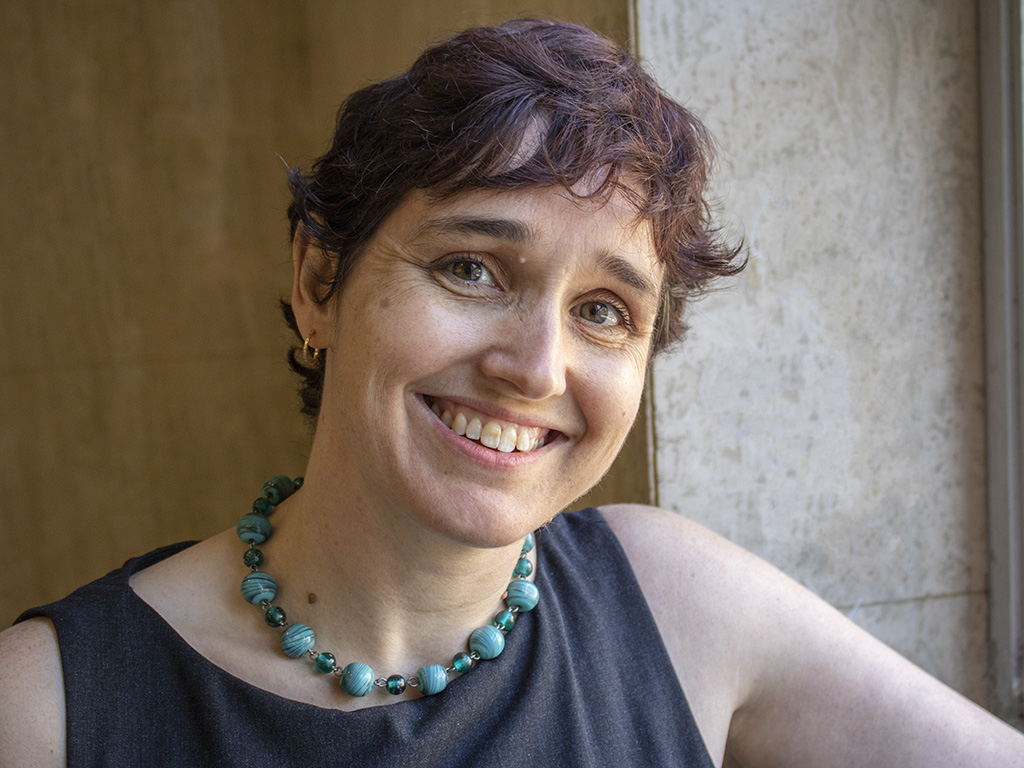CFI grant will help build innovative new lab to explore digital and sustainable buildings
The Smart Campus Integration and Testing Lab will showcase and test smart technologies
March 05, 2021

A grant from the Canada Foundation for Innovation will support the development of the Smart Campus Integration and Testing Lab, led by professor Jenn McArthur.
The Canada Foundation for Innovation (CFI) is supporting the development of the world’s first building designed to be 100 per cent digitally enabled. The grant was announced on March 2 by Prime Minister Justin Trudeau and François-Philippe Champagne, the innovation, science and industry minister. Led by Ryerson architectural science professor Jenn McArthur, this lab facility will enable the exploration and testing of “smart building” products and management strategies, which could help address and mitigate climate change.
The $1.96 million Innovation Fund grant will support professor Jenn McArthur and her collaborators from Ryerson, the University of New Brunswick and the University of Victoria at the Smart Campus Integration and Testing Lab (SCITLab), a purpose-built lab that will be hosted at Ryerson as both a showcase for existing smart technology and as a testing environment for emerging projects and research. Topics of investigation include integrating Smart City and Smart Campus management, optimizing building energy efficiency, improving occupant health and productivity, reducing carbon emissions and mitigating cybersecurity risks. Two remote installations in buildings at the partner universities will contribute data to the system.
“It’s designed to be the world’s first 100 per cent digitally enabled building,” said professor McArthur. The project will address what she notes is one of the biggest challenges facing smart buildings: the lack of data and tools to make existing buildings “smart.” It’s easy to add smart systems to optimize performance in brand new buildings, but it can be difficult to do the same with already existing ones and equipment. Professor McArthur says if the large-scale sustainability of the built environment is going to be improved, better performance is needed across all buildings, not just new ones. The SCITLab will also serve as a demonstration for net-zero building solutions. “This facility is designed to serve as a model for what sustainable construction can look like beyond 2030. We’re aiming for net-zero carbon over the life cycle of the building and to really use it as an opportunity to showcase the state-of-the-art technologies that we need to mitigate climate change,” she said.
The SCITLab will facilitate the testing of control strategies for residential and commercial smart building applications, such as low-carbon air and water heat pump systems, lighting, communication systems and more through “Smart Home” and “Smart Office” sections. There will be an operations centre providing an interface with the data collected from across the SCITLab as well as the Ryerson University “Digital Twin.” This Digital Twin will provide interactive real-time data viewing and scenario simulation for the Ryerson campus and is being developed by professor McArthur and partners through a Natural Sciences and Engineering Research Council of Canada Alliance Grant. It integrates building, infrastructure and transportation data streams from a variety of campus systems to create a suite of algorithms to support optimization and detect and flag unusual events.
“Congratulations to professor McArthur and her team. This investment will enable the advancement of exciting, leading-edge work that will focus on developing digital, sustainable buildings, and help to address critical challenges such as climate change through support for infrastructure,” said Steven N. Liss, Ryerson’s vice-president, research and innovation.
The SCITLab is one of 102 projects that were part of a federal government announcement of $518 million in research infrastructure funding. Learn more about the CFI Innovation Fund grants (external link, opens in new window) (external link) .
Related links
Researchers secure CFI funding for new, state-of-the-art infrastructure
Ryerson teams to research new ways of diagnosing and treating COVID-19